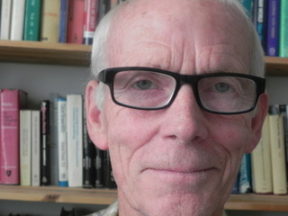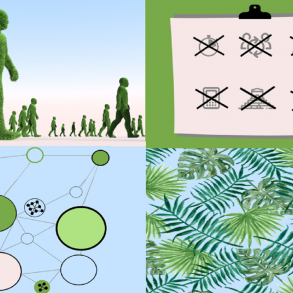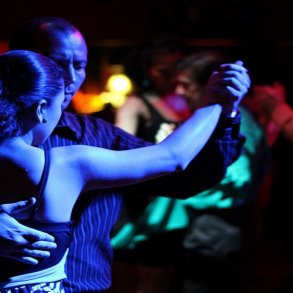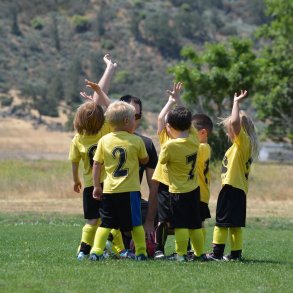By Michael McMaster for Enlivening Edge Magazine
 Emergent evolution has been the driving force of the planet since time began. Emergence is that phenomenon which creates novelty — new features and even new entities which cannot be reverse-engineered. These innovations are creations from the unintentional interplay of elements of existence that cannot be reproduced on purpose. If we could reproduce the same thing by repetition then it would not be an event of emergence. Emergent evolution by its nature increases the complexity of the world and, is by definition, non-linear. That which emerges from lower levels of complexity can be neither predicted nor controlled. This has profound implications for the craft of management. In particular, it transforms what it means to be a manager in a complex adaptive organization, which is any for-purpose enterprise.
Emergent evolution has been the driving force of the planet since time began. Emergence is that phenomenon which creates novelty — new features and even new entities which cannot be reverse-engineered. These innovations are creations from the unintentional interplay of elements of existence that cannot be reproduced on purpose. If we could reproduce the same thing by repetition then it would not be an event of emergence. Emergent evolution by its nature increases the complexity of the world and, is by definition, non-linear. That which emerges from lower levels of complexity can be neither predicted nor controlled. This has profound implications for the craft of management. In particular, it transforms what it means to be a manager in a complex adaptive organization, which is any for-purpose enterprise.
There are aspects of organizational activity that are linear, predictable, and controllable. A good manager knows which they are and acts accordingly. But by far the most important aspects of organization are a function of its complexity and are not amenable to traditional command and control management.
While complexity cannot be managed, human beings co-evolved with the increasing complexity of the world and hence are capable of being effective in that complexity.
Because we are language-using social beings, we have the capacity and the tools to be comfortable with complexity. We are more adaptive and complex than any other entity, except potentially, our purpose-driven organizations. The important thing to understand is that each member of the organization is inside the social framework; there is no one outside the system working on it; we all are participants in the system. This concept points the way to understanding how to have our organizations function well in every level of complexity that emerges.
What is the nature of organization?
Now we need to understand what an organization is.
Its essence is that it is a complex entity of coordinated action.
The means of that coordination is language. To organize means to order various flows of energy and/or information so that they can coordinate action and results on ever-increasing scales. You can say that an organization is a business or a culture or a social institution or a network of people. All are true. None, however, give us access to their design and operation at a practical level, as does thinking of an organization as a linguistically-coordinated system for producing specific results.
culture or a social institution or a network of people. All are true. None, however, give us access to their design and operation at a practical level, as does thinking of an organization as a linguistically-coordinated system for producing specific results.
So, if the essence of an organization is a complex adaptive system of coordinated action and the essence of complex adaptive systems is that they are unmanageable, what will a manager manage? In terms of the traditional meaning of manage, not much.
In terms of working with complexity we need to disrupt our thinking and transform the role of manager to include system designer.
While a manger works with people to cause breakthroughs in performance, the major part of this work is development of people and facilitating conversation. As a system designer, a manager needs to focus on the changes in organization design that have the highest likelihood of increasing its ability to adapt, respond, and evolve rapidly in concert with its rapidly changing internal and external environment. The organization design needs to support those development and communication processes.
We are going to use the term manager, from this part forward in this article, to refer to a system designer. Just for this article. I’m sure “manager” will still be the accepted word, but its meaning and significance will be changed forever. It will be transformed.
The work of system design
Let’s look then at the work of a system designed in this context. As we saw earlier, an organization is the ordering of systems (smaller organizations) that are designed to coordinate action. What coordinates action are a purpose and the systems which arrange or order flows to fulfill that purpose. The most important flows are those of energy and information.
This means that at its highest level, the designer of a system orders the flows of energy and information. After that initial ordering, the designer will constantly monitor the system to ensure that it is working as it is supposed to and, equally important, the designer is able to make alterations to the system to make corrections as needed.
A systems designer role is also, by observation, to see where improvements can be made to increase productivity. Much of this will occur in dialogue with others rather than merely in the manager’s head or by reading reports. Innovation will occur from new thinking, experience, information, technology, and many unexpected places, in the course of dialogue.
We might think of managers as managing the flows of information, not so much the content of information, between people, across accepted boundaries, and from sources outside the enterprise framework. What influences these flows in organization design? Human organizations are creatures of language design. The results that your enterprise gets are exactly the results it is designed to get.
If you want different results, you’ll need a different design, a different organization.
The unique nature of intelligent complex adaptive systems (iCAS)
 The main features of this approach can only be understood when we see the nature of complex adaptive systems and the particular additional unique aspect of human organizations. The agents in complex adaptive systems produce emergent events and results that cannot be predicted. What can be worked with is the redesign of systems of coordination to take account of each emergent or group of emergent phenomena. So, just by being complex adaptive systems, which organizations are, we must realize we cannot control them. We can, however, influence them. Old-fashioned management will not work. Old-fashioned organization designs will not work.
The main features of this approach can only be understood when we see the nature of complex adaptive systems and the particular additional unique aspect of human organizations. The agents in complex adaptive systems produce emergent events and results that cannot be predicted. What can be worked with is the redesign of systems of coordination to take account of each emergent or group of emergent phenomena. So, just by being complex adaptive systems, which organizations are, we must realize we cannot control them. We can, however, influence them. Old-fashioned management will not work. Old-fashioned organization designs will not work.
Want innovation and not getting it? Design more dialogue, more shared information, more distributed intelligence, more introduction of new people, more exploration outside your existing boundaries, and you’ll get more innovation.
The first place to look, however, the one with the most immediate release of energy, is to open curiosity, and to remove interference with natural human activities like sharing information and creating mini-projects to accomplish something.
What is not to be managed is anything outside of this new understanding. That is, people are not to be managed. Complexity is not to be managed. This is just as well because neither can be managed. They share similar basic qualities of adaptability and emergent phenomena. Not only can’t they be managed, they can’t even be controlled. They can only be enhanced or suppressed or killed off.
So, organization design is the heart of management and making adjustments to organization design to improve coordinated action should be the main regular activity of a manager.
What does management mean in relation to independent agents?
Now we’ll up the stakes. Organizations of human social design, like your enterprise, have a unique feature not present anywhere else on the planet. That is, the main agents of the system are individual human beings in systems created by human beings. They are the independent source of energy, ideas, thinking, innovation, information, knowledge exchanges, and all other life forces. Compared to these, all other agents or energy flows are trivial.
This feature, more than any other, makes an organization adaptive. These organizations are intelligent complex adaptive systems (iCAS). That is, their agents are intelligent in their own right–and this creates a new emergent phenomenon: an organization that has intelligence greater than that of any individual in it and greater than merely the sum of those intelligences. The most intelligent life form on the planet is, I assert, human purpose-driven organization.
A manager must be concerned with design that maximizes the intelligence of the organization by liberating the discretionary energy, commitment, and intelligence of its members and also maintains a focus for that—the purpose. The overall purpose is contribution to life on the planet and, at least by association, to the planet itself. The challenge, at all levels of an organization, is to maintain full integrity with what has gone before, in the largest possible context, and what is most contributing to the larger ecologies of markets and society.
What we haven’t considered so far in this writing is the nature of those most important of agents in the complex adaptive system. What is the work of management vis-à-vis the people they are accountable for? Coercion fails to generate action because, after all, the contribution of each member of the organization is ultimately voluntary. So, to create the full coordination of action and maximum participation naturally calls for the fullest satisfaction of higher human values.
 The experience of respect, participation in a larger goal, communication and belonging, expressing oneself, contribution, producing value, are the major elements of organizational life that, when present, bring forth the highest possibility from each member of the organization.
The experience of respect, participation in a larger goal, communication and belonging, expressing oneself, contribution, producing value, are the major elements of organizational life that, when present, bring forth the highest possibility from each member of the organization.
Ensuring these experiences are present is perhaps the most high- leverage managerial action to cause lasting benefit for the whole.
The ultimate goal of social organizations and of managers should be to provide venues for doing good work. Management is not about “managing people”. That should be a relief because people are not to be managed. People are to be developed, respected, provided with the tools to do their work. Ensuring the existence of commonly-understood common values, and the existence of processes that coordinate their actions with others to produce satisfying results is also the job of a manager. This is the transformation of management.
I will close with three brief reflections on how “good work” might be described.
“Work is a form of living, with its own intrinsic rewards; any way of organizing work which is at odds with this idea, which treats work instrumentally, as a means only to other ends, is inhuman.” ~ Christopher Alexander from A Pattern Language page 399, Oxford University Press, New York, 1977.
The Buddhist point of view takes the function of work to be at least threefold: to give one a chance to utilize and develop one’s faculties, to enable one to participate in community efforts with others, and to bring forth goods and services that are needed for society’s existence. (paraphrased from Buddhist Economics by E.F. Schumacher in Alexander’s book A Pattern Language, Same reference as above (including page number;) attributed to Resurgence, 275, Kings Road, Kingston, Surrey, Volume 1, Number 11, January 1968.)
“If the nature of work is properly appreciated and applied, it will stand in the same relation to the higher faculties as food is to the physical body. It nourishes and enlivens the higher person and urges one to produce the best one is capable of. It furnishes an excellent background for one to display one’s scale of values and develop one’s personality.” ~ J. C. Kumarappa, Indian economist and philosopher (quoted from same source as above – later in the quote from Schumacher on page 400 of Alexander’s book.)

Michael McMaster has a C.P.A. and management background furthered by studies at the Santa Fe Institute in its early days, applying complex adaptive systems theory to organizational transformation. He has 30 years consulting to large corporations based in this work. His latest book is What IS Organizational Intelligence?: An Intense Primer. Contact +1-604-307-3297 or [email protected].





Michael,
Thanks for this exhaustive and original text on CAS, and for proposing the new iCAQ concept!
In a humble way, I have been using a CAS approach in the field of external relations! Yes, I know, it seems rather surprising but it led me to new insights, as the simple fact of looking at things from another eye (actually an act of creativity : looking from the complexity angle!) opens new avenues for action.
As I could not leave CAS going nowhere (…) without any ‘human input’, I injected the Chinese way (maybe also Scharmer’s position) ; instead of objectives to reach, we only have a general intention (a compass showing the mangetic Norht is better than a map!). Then we start from the context, and act, making the most and the best for us and our communities. So, we do not feel the need to put aside everything whihc stands between us and the so-called objectives.
For me, managing complex systems means how to feel comfortable wiht the unknown. This has personal, community and institutional dimensions. I would say wisdom and attention (mindfullness).
In your post, you could possibly mention more explicitly the role of speed, in parcilaar as speed combined to non-linearity leads to exponential and disruptive developments!
True, orgabisations, while complex in essence, also have aspects linked to simple and also complicated systems, and D. Snowden showed us 20 years ago how to deal with this in an adequate way.
Now, true, experimentation is a key trend of today and of a CAS: theory comes from practice and not the other round (see Taleb). We do not need to understand before acting. Now, regarding values, I am afraid of this word which always leads us to beleieve that our values are better than others’ ones! I prefer the concept of principles like respect, active listening, diversity, mutuality, etc. Here again the East is a wise source for our inspiration.
I have been focusing on a largely underestimated aspect related to CAS in recent years : policymaking, I mean which kind of policies for CAS (or iCAS)? I haven been focusing on the arts recently, as the political and economical system seems totally blocked.
A last comment on experimpentation: nurtured by our intention we have to select where putting our attention: on whihc acupuinture points so that the ‘chi’ freely circulates and flows throughout our body, in organisations, in cities and our world.
Ready to share my humble ‘production’ separately.
Best
a
(give my best regards to George P.!
Thank your for your comments. My first response is that personal experience with Eastern philosophy, religion and practices provides much more comfort (and early ability) in dealing with theories of complex adaptive systems. One of my philosophy mentors had some Eastern background but also introduced me to the early Greek word “Praxis”. This refers to a constant simultaneous awareness of the relationship between practice and theory. I therefor don’t hold that one comes from the other but that they are co-emergent.
Maybe this influences somewhat my view of strong affinity for you reflections on goals. Specific goals have their place, as do the older sciences and structures, and the senior focus should be on less specific and larger intentions, vision, or whatever you like to call them. As we can only adjust but not control a complex adaptive systems we should have our overall purpose be consistent with emergent evolution and linearity.
“Values” is definitely a loaded word. But it must be taken on. Principles, in my view are related but not the same as values. I hold principles to be more operational and they should emerge from the values held. I believe their are fundamental values appropriate to human beings. I am, however, not so interested in “mine” or “yours” but that they exist and are made explicit both is language and in practice. The one part that I couldn’t find to fit in the article which I hold to be deeply significant is that organization of an iCAS is a language based phenomenon. For values, principles, purpose and vision words are the anchors or “attractors” that are the basic elements.
Finally, your reference to speed may seem to have been missed. I appreciate your comment because I see that I need to address that more specifically and will incorporate that in future writings. The key word for me in CAS is “adaptive”. A huge component of anything that is adaptive is speed. If for no other reason than the world of enterprise always involves getting “there” first. “There” does not necessarily mean being the first user. It means being the first best user.
Again, thank you for your comments. I develop ideas by seeing through the eyes of others as well as my own and then integrating, which transforms everything over and over.
(George will see this.)
First, the preceding reply was from the author under an ID (pieman01ng) used for other things. This one is my consulting company email name.
Second, to further address speed. As my focus is always on iCAS and almost exclusively ‘purpose-driven’ organizations, it is the speed of the entity and not the individuals who are members or ‘agents’ of that organization that I write about.
Speed in such organizations is a function of communication flows. In particular, those communication flows that enhance the capacity to coordinate action. The first challenge is to think from this place of coordinating action rather than merely being correct or adding to knowledge or developing relationship. All these latter are good, but what is necessary for productive results is coordinated action. The manifestation of this challenge will be to design systems of flow for coordinated communications.
The second challenge is to remove barriers to the free flow of communications, including barriers to the availability and visibility of communications in real time – or the closest your technology can get to that. Traditional organization is a design for barriers. Destroying these barriers will be disruptive. (But not destructive.) In CAS terms, these can be thought of as ‘frozen accidents’. That is, historical remnants embedded in the system and no longer receiving any thought as to the benefit or harm they are doing.
I am intending to create a language which gives us the ability to put our hands on emergent evolution by making clear the actionable areas of influence that are available to us. I am refusing to go far in this domain, at least publicly, until the thinking of iCAS is embedded. Otherwise, as I’ve discovered from painful experience, the rationalist linearity of the inherited thinking replaces the theory of CAS and soon turns into additional rigid ‘frozen accidents’. When this occurs, the gains, both material and emotional, die and we are left with new ‘frozen accidents’ – and disappointment and disillusionment.